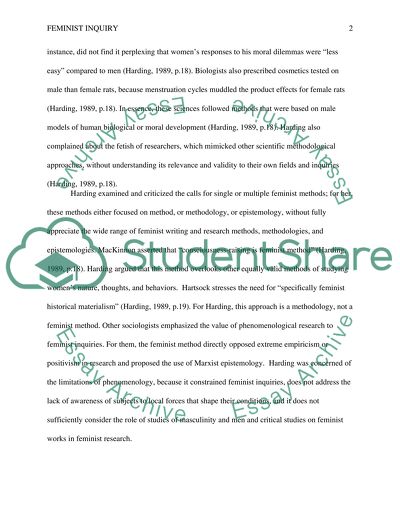Three Briefs - Feminist Inquiry Assignment Example | Topics and Well Written Essays - 750 words. Retrieved from https://studentshare.org/education/1446166-briefs-feminist-inquiry
Three Briefs - Feminist Inquiry Assignment Example | Topics and Well Written Essays - 750 Words. https://studentshare.org/education/1446166-briefs-feminist-inquiry.


